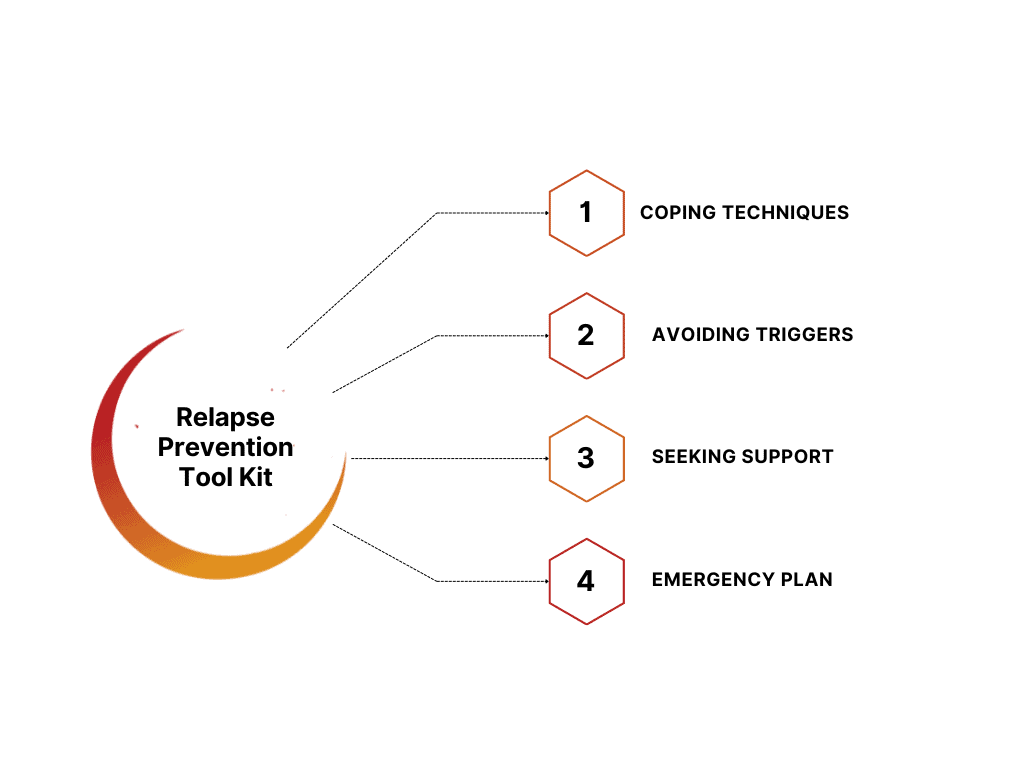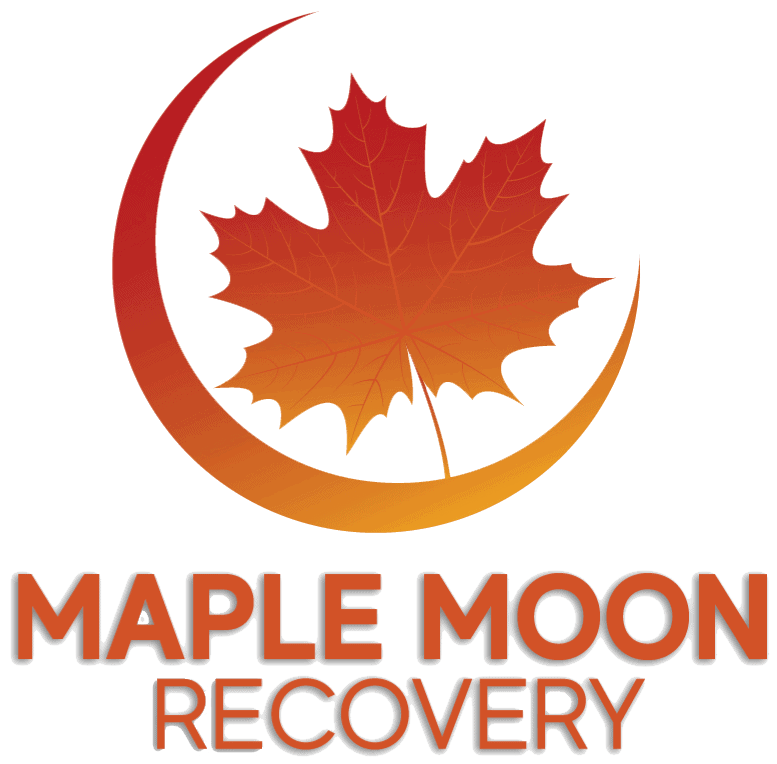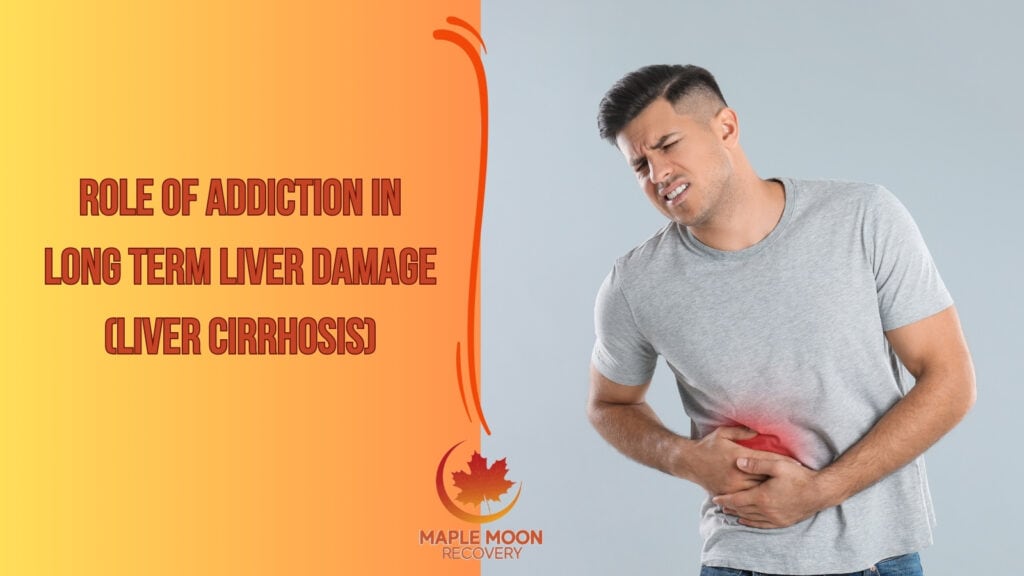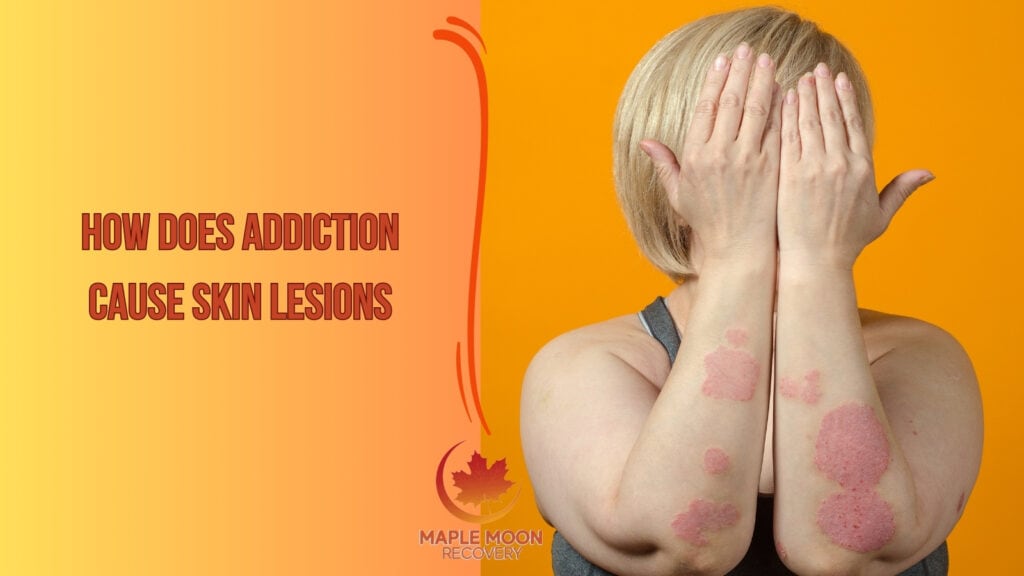Key Takeaways
- Alcohol addiction is a complex issue that affects both physical health and relationships.
- Acknowledging the problem is the first crucial step in overcoming alcohol addiction.
- Seeking professional help is essential as it provides the necessary support and guidance for recovery.
- Building a support system, including family, friends, and support groups, is vital for emotional support.
- Creating a personalized treatment plan, in consultation with professionals, can include therapy, medication, and other interventions.
- Implementing lifestyle changes such as a healthy diet, regular exercise, and engaging in hobbies can positively impact recovery.
- It’s important to avoid triggers and learn stress management techniques to maintain sobriety.
- Understanding that relapse can be part of the recovery process, and having strategies for preventing relapse, is essential.
- Staying committed to recovery requires perseverance, and celebrating small victories can be motivating.
- Planning for a future free from addiction involves setting long-term goals and continuing to build a support system.
- Maple Moon Recovery offers a range of services for individuals struggling with alcohol addiction and can be an excellent resource for those seeking help.

Alcohol addiction, often referred to as alcoholism, is a chronic, progressive disease characterized by an inability to control one’s drinking, preoccupation with alcohol, continued use despite adverse consequences, and increased tolerance and withdrawal symptoms. It is a complex condition that can affect every aspect of an individual’s life, including physical health, mental well-being, relationships, and work.
The importance of taking steps to overcome addiction:
Taking steps to overcome alcohol addiction is crucial for regaining control of one’s life. The consequences of untreated alcohol addiction can be severe and far-reaching, including health problems such as liver disease and heart conditions, strained relationships, financial difficulties, and a decreased quality of life. Moreover, overcoming addiction can open doors to new opportunities, improved relationships, better health, and a sense of accomplishment and self-worth.
This guide is designed to provide a roadmap for individuals who are struggling with alcohol addiction or for those who are seeking to support a loved one. Through a series of practical steps, this guide aims to empower individuals with the knowledge and tools necessary to break the chains of addiction. From acknowledging the problem to seeking professional help, building a support system, and staying committed to recovery, each step is a building block towards a healthier and more fulfilling life free from the grips of alcohol addiction.
Understanding Alcohol Addiction
What is alcohol addiction? Alcohol addiction, also known as alcohol use disorder (AUD), is a chronic brain disease characterized by the compulsive consumption of alcohol, loss of control over alcohol intake, and a negative emotional state when not drinking. It involves a physical dependence on alcohol to the point where it becomes a central focus of the individual’s life. People with alcohol addiction may find it difficult to quit or reduce their drinking, even when it causes harm to themselves or others.
Causes and risk factors:
There is no single cause for alcohol addiction; rather, it is the result of a combination of genetic, environmental, psychological, and social factors. Some of the common risk factors include a family history of addiction, mental health disorders, stress at work, peer pressure, and the early initiation of drinking. Additionally, certain genetic factors may make some individuals more susceptible to alcohol addiction.
The effects of alcohol addiction on health and relationships:
Alcohol addiction can have devastating effects on both physical health and relationships. Physically, excessive alcohol consumption can lead to liver disease, heart problems, cancer, and brain damage. It can also increase the risk of accidents and injuries. Psychologically, it can lead to depression, anxiety, and other mental health issues. In terms of relationships, alcohol addiction can cause strain and conflict with family and friends, leading to isolation, marital problems, and issues at work or school. Understanding these effects is crucial in recognizing the importance of addressing alcohol addiction.
Acknowledging the Problem
The first step in overcoming alcohol addiction is recognizing the signs. Some common signs include drinking more or for longer periods than intended, unsuccessful attempts to cut down or control alcohol use, spending a lot of time obtaining, using, or recovering from the effects of alcohol, and continuing to drink despite knowing it’s causing physical or psychological harm. Additionally, neglecting responsibilities at work, school, or home, and withdrawing from social activities or hobbies are also indicative signs.
The importance of acknowledging the issue:
Acknowledging that there is a problem with alcohol is crucial because denial is often a significant barrier to treatment. Without acknowledgment, it is unlikely that an individual will take the necessary steps to seek help. Recognizing the issue is the foundation upon which recovery is built, as it opens the door to considering different treatment options and making positive changes.
Self-reflection and acceptance:
Taking some time for self-reflection is an essential part of acknowledging the problem. This involves honestly assessing one’s drinking habits, the impact it has on one’s life, and the underlying reasons for drinking. Acceptance is realizing and admitting to oneself that alcohol has become a problem and that professional help and support may be needed to overcome it. This acceptance is a turning point that can lead to a commitment to change.
Seeking Professional Help
Professional help plays a vital role in overcoming alcohol addiction. It provides the necessary support, guidance, and tools needed to address the physical and psychological aspects of addiction. Professionals can help individuals develop coping strategies, manage withdrawal symptoms, and work on underlying issues that may contribute to addiction.
Different types of professional help:
There are various forms of professional help available for those looking to overcome alcohol addiction:
- Counselors: Licensed counselors or therapists can help individuals understand the root causes of their addiction and develop strategies for managing cravings and avoiding relapse.
- Doctors: Physicians can provide medical support for managing withdrawal symptoms and may prescribe medications to help reduce cravings for alcohol.
- Rehab Centers: Rehabilitation centers like Maple Moon Recovery offer comprehensive treatment programs that often include medical care, counseling, group therapy, and other support services. These centers can be residential (inpatient) or allow individuals to live at home while receiving treatment (outpatient).
How to find the right help for you:
Finding the right help is crucial for a successful recovery. It’s important to consider personal needs, preferences, and circumstances. Some individuals may benefit from a combination of counseling and medical treatment, while others may need the structured environment of a rehab center. It’s advisable to consult a healthcare professional for guidance and to research different treatment options. Additionally, seeking recommendations from trusted friends or family members who have gone through similar experiences can be valuable.
Building a Support System
Having the support of family and friends is crucial in the journey to overcome alcohol addiction. They can provide emotional support, encouragement, and help in maintaining accountability. It’s important to be open with them about the challenges faced and the kind of support needed.
Joining support groups:
Support groups, such as Alcoholics Anonymous (AA), can be an invaluable resource. They provide a community of individuals who have faced or are facing similar challenges. These groups offer a space to share experiences, learn from others, and build a network of support.
Communicating with your support system:
Regular communication with your support system is key. Keep them informed about your progress, challenges, and any help you might need. It’s also important to listen to their concerns and be open to their feedback.
Creating a Personalized Treatment Plan
A personalized treatment plan is essential for addressing the unique needs and challenges of each individual. Work closely with healthcare professionals to develop a plan that combines various therapies and interventions suited to your situation.
Different treatment options
There are several treatment options available, including:
- Therapy: Cognitive behavioral therapy, family therapy, and other counseling methods can help address psychological aspects of addiction.
- Medication: Certain medications can help manage withdrawal symptoms or reduce cravings for alcohol.
- Holistic approaches: Techniques such as meditation, yoga, and nutrition counseling can be part of a comprehensive treatment plan.
Setting realistic and achievable goals:
Set short-term and long-term goals that are specific, measurable, achievable, relevant, and time-bound (SMART). Regularly review and adjust these goals as needed. Celebrate small victories and stay focused on the ultimate objective of overcoming alcohol addiction.

The diagram above represents a Relapse Prevention Toolkit, which is essential for anyone recovering from alcohol addiction. The toolkit is depicted as a central hub with connections to various tools and strategies that can be employed to prevent relapse. These include:
- Coping Techniques: Methods and strategies to deal with the emotional and physical challenges during recovery.
- Avoiding Triggers: Identifying and avoiding situations or things that can provoke cravings or temptations.
- Seeking Support: Building a support system, including friends, family, and support groups, to help during the recovery process.
- Emergency Plan: Having a plan in place for what to do if you feel like you might relapse or if a relapse occurs.
Implementing Lifestyle Changes
Adopting a healthy lifestyle is a fundamental component of recovery. It helps in improving physical health, mental well-being, and enhances the ability to cope with the challenges of overcoming addiction.
Exercise, diet, and hobbies:
Engaging in regular exercise can alleviate stress and improve mood. A balanced diet is essential for physical health and can impact mental well-being. Picking up new hobbies or rekindling old ones can provide a sense of purpose and fulfillment that is crucial during recovery.
Avoiding triggers and managing stress:
Identify and avoid situations or environments that may trigger the desire to consume alcohol. Develop stress management techniques such as deep breathing, meditation, or talking to a friend to cope with situations that can’t be avoided.
VIII. Relapse Prevention
Understanding that relapse can be part of the process:
It’s important to recognize that relapse doesn’t mean failure. For many, relapse is a part of the recovery journey. Understanding this can prepare you for the challenges ahead and help in quickly getting back on track if a relapse occurs.
Strategies for preventing relapse:
Create a relapse prevention plan which may include avoiding known triggers, continuing with therapy, engaging in support groups, and having a support system in place. Keep a journal to monitor your thoughts and emotions, and develop coping strategies for high-risk situations.
What to do if relapse occurs:
If a relapse occurs, it’s crucial not to be too hard on yourself. Reach out to your support system, contact your healthcare provider, and focus on what can be learned from the relapse to strengthen your relapse prevention plan. Reaffirm your commitment to sobriety and continue moving forward.

Staying Committed to Recovery
Staying committed to recovery is essential for long-term success. It’s a journey that requires continuous effort, dedication, and perseverance. Understanding that there will be challenges along the way, but remaining steadfast in your commitment is key to overcoming them.
Celebrating small victories:
Recovery is made up of many small steps and victories. Celebrate each one, no matter how small it may seem. Whether it’s resisting a craving, attending a support group meeting, or reaching a sobriety milestone, acknowledging and celebrating these achievements can be incredibly motivating.
Planning for a future free from addiction:
Envision a future where you are free from the constraints of addiction. Set long-term goals and aspirations that are unrelated to alcohol. This can include career goals, relationships, or personal achievements. Having a future to look forward to can be a powerful motivator in staying committed to recovery.
The Road to Renewal: Take the First Step with Maple Moon Recovery
In conclusion, overcoming alcohol addiction is a challenging but immensely rewarding journey. It requires understanding the nature of addiction, acknowledging the problem, seeking professional help, building a support system, implementing lifestyle changes, and staying committed to recovery. Remember that you don’t have to face this challenge alone. If you or a loved one is struggling with alcohol addiction, Maple Moon Recovery offers a range of services and a compassionate team to support you on your path to recovery. Take the leap towards a healthier, happier, and more fulfilling tomorrow by reaching out to Maple Moon Recovery for the help and guidance you need.




